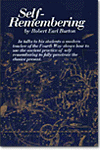|
|
Robert Earl Burton
Robert Earl Burton Quotations
Robert E. Burton founded the Fellowship of
Friends in the San Francisco Bay Area in 1970.
Since then, the non-profit organization has
expanded to embrace a worldwide membership. Burton
has taught the Fourth Way to thousands of students,
travelling around the world from Moscow to Madrid,
from Venice to Beijing. He has also founded the
community of Apollo, California, where students
committed to the Fourth Way can have a more
intensive opportunity to practice its application.
Apollo is home to a world-class winery, several art
collections, an orchestra, and also theater, opera,
and ballet companies.
There is little in Burton’s background to augur
such an eventuality: he was born in Little Rock,
Arkansas, in 1939, and moved to California with his
family four years later. He received his bachelor’s
degree in education from San Jose State University
in 1963, and became a competitive tennis player as
well as a schoolteacher.
After several years’ involvement with the Fourth
Way teaching and methods, he created the Fellowship
of Friends, taking a more compassionate approach to
awakening. Hence, he has termed the Fellowship a
“School of Love,” in which he gently but inexorably
presses his students towards a higher level of
consciousness.
Woven into Burton’s methods is the concept that
“impressions” can be food for the soul. He has
tirelessly promoted the arts within the Fellowship,
educating himself and encouraging others to educate
themselves in all the arts. His artistic
appreciation is wide-ranging, and the forms of its
expression have varied greatly - from poetry
readings to scholarly journals, from impressive art
libraries to fountains, landscape gardening, and
horticulture. At Apollo, he has founded a museum
focusing on, at various periods, fine porcelain,
cameos, silver, Old Master paintings, and Chinese
furniture from the Ming and early Qing dynasties.
Typically, the Fellowship studies, then disperses
and redirects its collections, always improved and
enlightened by the contact. His current emphasis is
on the French decorative art of the 18th
century.
“We appreciate the arts and have a limited
understanding of them, but what we really
understand is ... how to create a soul,” he has
said. “There is no higher art form than one’s own
individual soul.”
Hence, he sees his chief work as awakening his
“beloved students.” On more than one occasion he
has said that they are “more than I could ask for;
I could not ask for so much.”
Top
of page
© Copyright Fellowship of
Friends 2001 - All rights reserved.
|
|

York
Beach, Maine: Samuel Weiser, 1995.
You can
order this book online at Amazon.com.
|